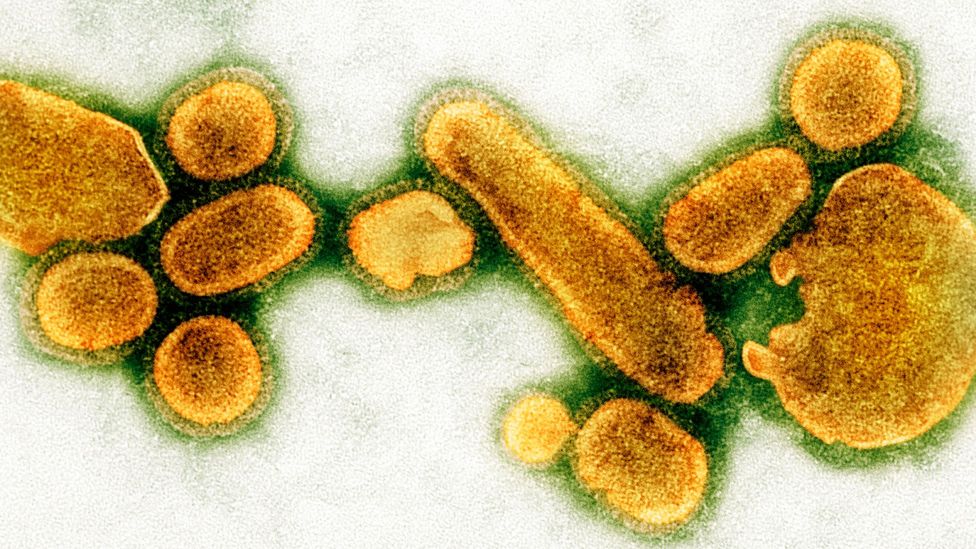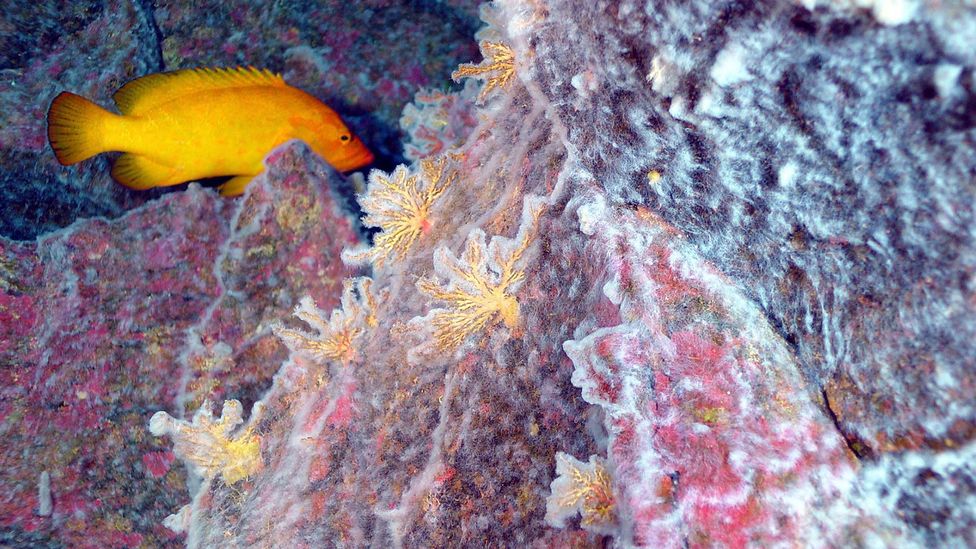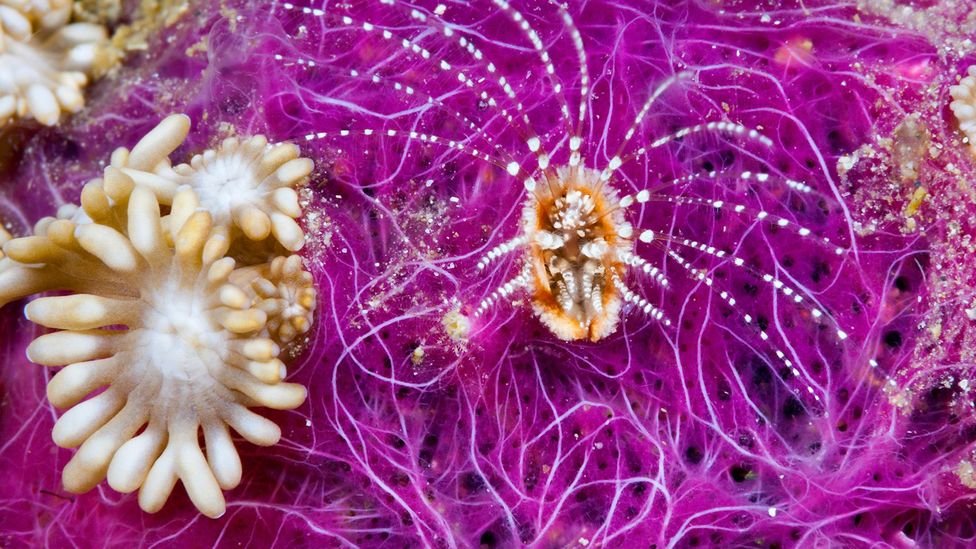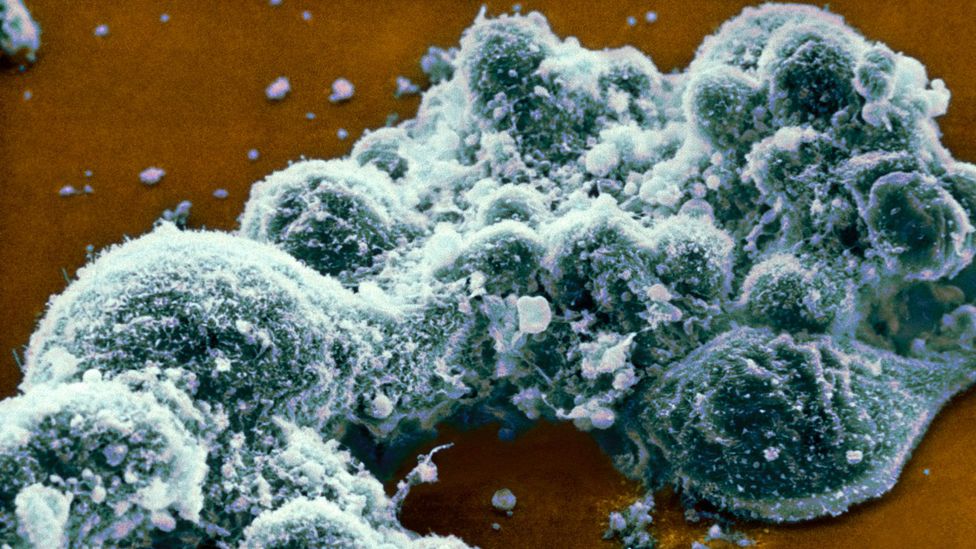How Do You Know if a Virus Is Gone
Why the world needs viruses to role
(Prototype credit:
Science Photo Library
)

If all viruses disappeared, the world would be very unlike — and non necessarily for the better. But what exactly would happen?
5
Viruses seem to exist solely to wreak havoc on society and bring suffering to humanity. They accept cost untold lives over the millennia, often knocking out significant chunks of the global population – from the 1918 flu epidemic which killed 50 to 100 million people to the estimated 200 million who died from smallpox in the 20th Century lonely. The current Covid-19 pandemic is just 1 in a series of ongoing and never-ending mortiferous viral assaults.
If given the choice to magically wave a wand and crusade all viruses to disappear, well-nigh people would probably bound at that opportunity, especially now. Yet this would be a mortiferous fault – deadlier, in fact, than whatsoever virus could ever be.
"If all viruses suddenly disappeared, the world would be a wonderful place for almost a solar day and a half, and then we'd all dice – that's the lesser line," says Tony Goldberg, an epidemiologist at the Academy of Wisconsin-Madison. "All the essential things they do in the world far outweigh the bad things."
You might also like:
- Volition Covid-nineteen have a lasting touch on on the surround?
- The flu that transformed the 20th Century
- How will coronavirus change the globe?
The vast bulk of viruses are non pathogenic to humans, and many play integral roles in propping up ecosystems. Others maintain the health of private organisms – everything from fungi and plants to insects and humans. "We live in a balance, in a perfect equilibrium", and viruses are a part of that, says Susana Lopez Charretón, a virologist at the National Autonomous University of Mexico. "I recollect nosotros'd be washed without viruses."

Some viruses maintain the health of fungi and plants (Credit: Getty Images)
Nearly people are not aware of the role viruses play in supporting much of life on Earth, because nosotros tend to focus only on the ones that cause humanity trouble. Virtually all virologists solely study pathogens; simply recently have a few intrepid researchers begun investigating the viruses that continue us and the planet live, rather than impale us.
"Information technology'south a small-scale school of scientists who are trying to provide a off-white and balanced view of the world of viruses, and to show that there are such things every bit practiced viruses," Goldberg says.
What scientists know for sure is that without viruses, life and the planet equally we know information technology would finish to exist. And fifty-fifty if we wanted to, it would probably be impossible to annihilate every virus on World. But past imagining what the world would be like without viruses, we can better empathize not only how integral they are to our survival, but also how much nosotros still have to acquire near them.

Without viruses, the planet as nosotros know it would cease to exist (Credit: Getty Images)
For a beginning, researchers practice non know how many viruses even exist. Thousands take been formally classified, just millions may be out there. "We've discovered only a minor fraction considering people oasis't looked much," says Marilyn Roossinck, a virus ecologist at Penn State University. "It'south just bias – the science has always been nearly the pathogens."
Nor do scientists know what percentage of total viruses are problematic toward humans. "If you looked numerically, information technology would be statistically close to zero," says Curtis Suttle, an ecology virologist at the University of British Columbia. "Near all viruses out there are not pathogenic to things nosotros care most."
Key to ecosystems
What nosotros do know is that phages, or the viruses that infect bacteria, are extremely important. Their name comes from the Greek phagein, meaning "to devour" – and devour they do. "They are the major predators of the bacterial world," Goldberg says. "We would exist in deep trouble without them."
Phages are the primary regulator of bacterial populations in the bounding main, and likely in every other ecosystem on the planet as well. If viruses of a sudden disappeared, some bacterial populations would probable explode; others might be outcompeted and cease growing completely.
This would exist particularly problematic in the ocean, where more than 90% of all living cloth, past weight, is microbial. Those microbes produce about half the oxygen on the planet – a procedure enabled past viruses.

In the ocean, 90% of all living material is microbial (Credit: Getty Images)
These viruses kill most twenty% of all oceanic microbes, and nearly 50% of all oceanic bacteria, each day. Past culling microbes, viruses ensure that oxygen-producing plankton have enough nutrients to undertake loftier rates of photosynthesis, ultimately sustaining much of life on Earth. "If we don't take expiry, then we have no life, considering life is completely dependent on recycling of materials," Suttle says. "Viruses are and then important in terms of recycling."
Researchers studying insect pests also take found that viruses are critical for species population control. If a certain species becomes overpopulated, "a virus will come through and wipe them out", Roossinck says. "Information technology'due south a very natural office of ecosystems." This process, called "kill the winner", is mutual in many other species equally well, including our own – as evidenced by pandemics. "When populations become very abundant, viruses tend to replicate very rapidly and knock that population down, creating infinite for everything else to live," Suttle says. If viruses suddenly disappeared, competitive species likely would flourish to the detriment of others.
"Nosotros'd apace lose a lot of the biodiversity on the planet," Suttle says. "We'd accept a few species just take over and drive out everything else."

Without viruses, experts say, we'd lose a lot of the planet'south biodiversity (Credit: Getty Images)
Some organisms too depend on viruses for survival, or to requite them an edge in a competitive earth. Scientists suspect, for instance, that viruses play important roles in helping cows and other ruminants plough cellulose from grass into sugars that can be metabolised and ultimately turned into torso mass and milk.
Researchers also recall that viruses are integral for maintaining salubrious microbiomes in the bodies of humans and other animals. "These things are not well understood, just nosotros're finding more and more than examples of this close interaction of viruses being a disquisitional part of ecosystems, whether information technology's our human ecosystem or the environment," Suttle says.
Roossinck and her colleagues have discovered concrete evidence supporting this. In one study, they examined a fungus that colonises a specific grass in Yellowstone National Park. They found that a virus that infects that mucus allows the grass to become tolerant to geothermal soil temperatures. "When all three are there – the virus, fungi and found – so the plants can grow in actually hot soils," Roossinck says. "The fungus alone doesn't do it."

In Yellowstone National Park, a certain kind of grass has an increased rut tolerance due to a virus (Credit: Getty Images)
In another example written report, Roossinck constitute that a virus passed through jalapeno seeds allows infected plants to deter aphids. "Aphids are more attracted to plants that don't have the virus, so it'due south definitely beneficial," Roossinck says.
She and her colleagues have discovered that plants and fungi commonly pass viruses from generation to generation. While they accept yet to pinpoint the role of most of those viruses, they assume the viruses must somehow be helping their hosts. "Otherwise, why would plants hang on to them?" Roossinck says. If all of those benign viruses disappeared, plants and other organisms that host them would likely become weaker or even die.
Protective to humans
Infection with certain benign viruses even can aid to ward off some pathogens among humans.
GB virus C, a common blood-built-in man virus that is a not-pathogenic distant relative of Westward Nile virus and dengue fever, is linked to delayed progression to Aids in HIV-positive people. Scientists also found that GB virus C seems to brand people infected with Ebola less likely to die.
Likewise, herpes makes mice less susceptible to sure bacterial infections, including the bubonic plague and listeria (a common type of food poisoning). Infecting people with herpesvirus, bubonic plague and listeria to replicate the mouse experiment would be unethical, but the study's authors suspect that their findings in rodents likely apply to humans.

Herpes makes mice – and very maybe humans – less susceptible to certain bacterial infections (Credit: Science Photo Library)
While lifelong infection with herpesviruses "are unremarkably viewed as solely pathogenic," they write, their data suggest that canker in fact enters into a "symbiotic human relationship" with its host by conferring immune benefits. Without viruses, nosotros and many other species might exist more prone to succumbing to other diseases.
Viruses are too some of the about promising therapeutic agents for treating sure maladies. Phage therapy, the subject of considerable inquiry in the Soviet Matrimony every bit far back as the 1920s, uses viruses to target bacterial infections. It'due south at present a quickly growing field – not but because of increasing antibiotic resistance, but also considering of the ability to fine-tune treatments to knock out specific bacterial species rather than indiscriminately wipe our entire bacterial populations, as antibiotics do. (Read more well-nigh what nosotros practise and don't know about our microbiome).
"Quite a number of lives have been saved past using viruses when antibiotics have failed," Suttle says. Oncolytic viruses, or ones that selectively infect and destroy cancer cells, are too increasingly being explored as a less toxic and more efficient cancer handling. Whether targeting harmful bacteria or cancer cells, therapeutic viruses act "like little microscopic guided missiles that go in and blow up the cells nosotros don't want", Goldberg says. "We need viruses for a suite of enquiry and technology development efforts that are going to lead usa into the adjacent generation of therapeutics."
Because they are constantly replicating and mutating, viruses as well concur a massive repository of genetic innovation that other organisms can incorporate. Viruses replicate by inserting themselves into host cells and hijacking their replication tools. If this happens in a germline prison cell (eggs and sperm), the viral code can be passed on to the side by side generation and become permanently integrated. "All organisms that can be infected with viruses have an opportunity to suck upwardly viral genes and utilize them to their advantage," Goldberg says. "The insertion of new Dna into genomes is a major manner of evolution." The disappearance of viruses, in other words, would touch the evolutionary potential for all life on the planet – including Homo sapiens.
Viral elements business relationship for an estimated viii% of the human genome, and mammalian genomes in full general are peppered with around 100,000 remnants of genes originating from viruses. Viral lawmaking frequently manifests as inert pieces of DNA, only sometimes it confers new and useful – even essential – functions. In 2018, for example, two research teams independently made a fascinating discovery. A gene of viral origin encodes for a protein that plays a cardinal role in long-term memory formation by moving information between cells in the nervous system.

Ancient retroviruses are responsible for the man ability to take alive births (Credit: Getty Images)
The most striking example, though, relates to the evolution of the mammalian placenta and the timing of factor expression in human pregnancy. Evidence indicates that we owe our power to accept live births to a fleck of genetic lawmaking that was co-opted from aboriginal retroviruses that infected our ancestors more than 130 million years agone. As the authors of that 2018 discovery wrote in PLOS Biology: "It is tempting to speculate that human pregnancy would exist very unlike – perhaps even nonexistent – were information technology not for eons of retroviral pandemics afflicting our evolutionary ancestors."
Experts believe that such signatures occur throughout all forms of multi-cellular life. "At that place are likely many functions that remain unknown," Suttle says.
Scientists accept only just begun to discover the ways that viruses assistance to sustain life, because they have just merely begun to wait. Ultimately, though, the more we learn nigh all viruses, not just the pathogens, the better equipped we volition be to harness certain viruses for skillful and to develop defenses against others that could lead to the side by side pandemic.
More that, learning more nigh the wealth of viral diversity volition help usa unlock a deeper understanding of how our planet, ecosystems and very bodies piece of work. Equally Suttle says, "We need to invest some effort in trying to effigy out what's out there, just for our own good."
--
Bring together 1 1000000 Future fans by liking us on Facebook , or follow u.s.a. on Twitter or Instagram .
If you liked this story, sign up for the weekly bbc.com features newsletter , chosen "The Essential List". A handpicked option of stories from BBC Future, Culture, Worklife, and Travel, delivered to your inbox every Fri.
How Do You Know if a Virus Is Gone
Source: https://www.bbc.com/future/article/20200617-what-if-all-viruses-disappeared
0 Response to "How Do You Know if a Virus Is Gone"
Post a Comment